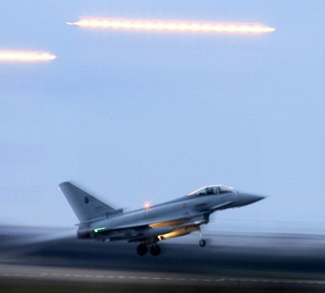Few cities can lay claim to history like Gdansk. The honorable, noble kind of history that lacks pretension but slowly, and then suddenly shifts the world. History was both thrust upon Gdansk and created there, either willingly by its citizens or as a result of larger external forces who viewed the city as a plaything for their larger ambitions. Following World War I, Gdansk exercised autonomy as a free city under a League of Nations mandate yet remained under the watchful eye of a revanchist neighbor aggrieved by the terms of its surrender under the Treaty of Versailles. With special rights and privileges in the interwar years, such as the ability to militarily develop the strategic Westerplatte peninsula on the Baltic coast, where the first shots of World War II were fired, Gdansk existed in a defiant and yet vulnerable position.
Gdansk, much like Poland as a whole, has toed the line of being powerful and then powerless, defiant and then subjugated, sometimes at the same time. For Peter Oliver Loew, author of a recent biography of Gdansk, ‘the city’s secret is its inbetweenness,’ existing ‘on the tension between historical wealth and relative periphery, between greatness and provincialism, between modernity and conservatism, and between change and persistence.’ It is a great city of Europe that is never referred to as one of the great cities of Europe like Rome, Paris, or Vienna, most likely because of its very inbetweenness and fraught identity caught between rival powers. Gdansk did not command an empire, it was ‘sufficiently removed from centers of power to defy the wills of rulers,’ as Loew writes, yet it was also ‘wealthy and influential enough to go its own way.’ However, Gdansk has always commanded reverence from those who visit, as any city with a penchant for altering the course of history should.
In the 1970s and 80s, Gdansk demanded of the world solidarity, decency, and moderation. The city fought tyranny with common, ordinary tools wielded by ordinary people like the electrician turned Solidarity leader Lech Wałęsa. At the European Solidarity Centre, a museum dedicated to the history of Solidarity and other popular movements against communism in the former Soviet bloc, one of the last exhibits is a video of Wałęsa’s address to a joint session of the US Congress in November 1989. After the US provided considerable support to Solidarity throughout the 1980s, and President George H.W. Bush paid a visit to Gdansk in July 1989, Wałęsa visited Washington later that year to express his gratitude as the world embraced the uncertain and sudden ‘end of history.’
In 2024, it can be easy to view Gdansk as part of the history that it helped create, distinctly wedded to an era that has come and gone. However, Gdansk, much like Poland as a whole, embodies a living history that is firmly rooted in the present and continues to shape the balance of power in Europe and the broader geostrategic landscape. In a critical election year for the United States, Gdansk also serves as a powerful reminder of the positive role that Washington has played in supporting democratic movements like Solidarity around the world, and the role it can continue to play in a new era of strategic rivalry. In his speech, Wałęsa acknowledged that the perception of the U.S. was not always positive in all corners of the world, but for Poland, Washington’s image was one of affection.
Wałęsa’s words also link closely to the present era of zero-sum politics that forgoes compromise and moderation in the pursuit of tribalism. Gdansk calls for nuance and serves as a reminder that history is made by flawed and complex individuals like President Woodrow Wilson. Wilson can simultaneously be revered in Poland for his role in creating an independent Polish state as part of his Fourteen Points yet remain controversial domestically for his views on race and for his other autocratic tendencies. Just as Americans can feel proud of the support their government has long provided Poland and other nations fighting for their freedom, they can rightly criticize other government actions that have harmed civilians and led to a crisis of confidence and a negative perception of American power.
Wałęsa also stated that in the days before the Second World War, it was asked, ‘why should we die for Gdansk?’, with the city accused of once again ‘disturbing the peace’ by fighting against the existing order. The same refrain can sometimes be heard now in reference to NATO territory, with the furthest corner of the alliance like Narva, Estonia replacing the proud city on the Baltic. In 1989, after the success of the Solidarity movement and the coming end of the Cold War, Wałęsa posited that ‘there is no longer a question of dying for Gdansk, but of living for it.’ Just as ‘living for Gdansk’ remains as important as ever, it is now also important that America lives for Kyiv, Tbilisi, Chisinau, and many other capitals that are fighting for their survival and integration into the European family of nations. The thousands of people currently gathering on the streets of Tbilisi after the Georgian Dream-led government interfered with the results of the election are disturbing the peace so that they can alter the course of their own history in the proud spirit of Solidarity.
The United States may have lost some of its luster and influence in the 21st century, but the alliances forged in the 20th century with states like Poland and through NATO are the ones that will continue to provide Washington with a competitive edge. These are deep bonds forged in the most trying moments by politicians and citizens of all stripes and political persuasions. While Kamala Harris may be more pro-NATO than Trump and stand firmly in support of Washington’s historic alliances, one of the first European trips either a President Trump or a President Harris will make will likely be to Warsaw. In doing so, the spirit of Solidarity and of living for Gdansk will carry forward, less so to alter the course of history and more to reaffirm the power of that history as it has been molded by ordinary, yet flawed individuals.
The views expressed in this article belong to the author(s) alone and do not necessarily reflect those of Geopoliticalmonitor.com.




